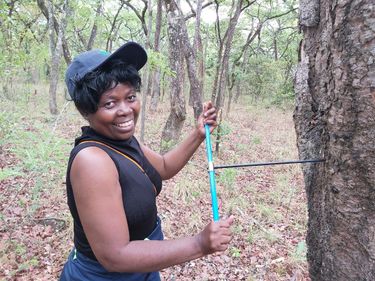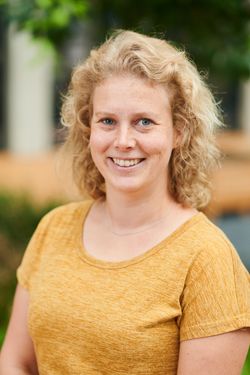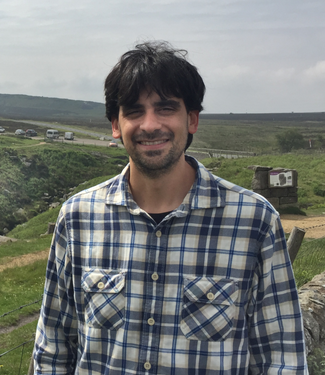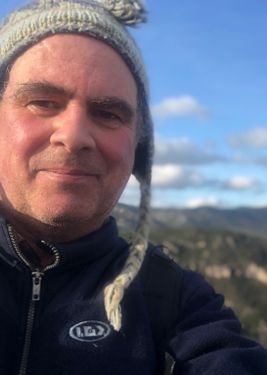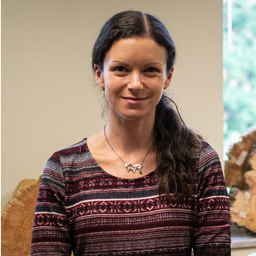
Sessions in which Maegen Rochner participates
Tuesday 28 June, 2022
As of 2020, 56% of the world’s population live in urban areas. These individuals benefit from numerous ecosystem services provided by urban forests, including urban heat island mitigation, energy use reduction, stormwater interception, wildlife and pollinator habitat provision, air pollution removal, and carbon sequestration. Urban greenspaces are also often the most accessible avenue for exposure to the natural environment, providing additional aesthetic, recreati...
Urban trees and forests provide a variety of social and environmental benefits, but their function, and therefore the benefits they provide, can be enhanced or diminished by human influences. More work is needed to understand how urban forests mitigate, and are affected by urban heat, pollution, and other anthropogenic influences, especially in light of modern urbanization and climate change. As concentrated sites of accelerated environmental change, urban forests may also provide insight ...
Wednesday 29 June, 2022
Information garnered from historical timbers and wooden artifacts (e.g. houses, barns, ships) can greatly enhance our understanding of human, ecological, and climate history, especially in regions where few old-growth forests and trees remain, tree longevity is relatively short (less than 300-400 years), and environmental conditions break down wood rather quickly, like in mesic to wet regions. Over the last decade plus, the application of tree-ring techniques on wo...
Information garnered from historical timbers and wooden artifacts (e.g. houses, barns, ships) can greatly enhance our understanding of human, ecological, and climate history, especially in regions where few old-growth forests and trees remain, tree longevity is relatively short (less than 300-400 years), and environmental conditions break down wood rather quickly, like in mesic to wet regions Over the last decade plus, the application of tree-ring techniques on woo...
Sessions in which Maegen Rochner attends
Monday 27 June, 2022
Blue Intensity (BI) is a cost-effective analytical method for measuring relative wood density in the rings of conifer tree species. Since early concept papers in the 1990s/2000s, there has been a recent explosion in the application of this method for both dendroclimatology and historical dating as well as other dendro-disciplines. The beauty of BI is that the analytical costs, mainly related to the cost of a h...
Blue Intensity (BI) is a cost-effective analytical method for measuring relative wood density in the rings of conifer tree species. Since early concept papers in the 1990s/2000s, there has been a recent explosion in the application of this method for both dendroclimatology and historical dating as well as other dendro-disciplines. The beauty of BI is that the analytical costs, mainly related to the cost of a h...
Meet colleagues and friends in an informal settingFree drinks for all!
Tuesday 28 June, 2022
Africa is faced with a number of challenges including climate change and ecological disturbance due to various anthropogenic activities. These problems adversely affect the forests and also ecosystem services. My appreciation for the forests motivated me to pursure my undergraduate studies in Forestry. I first applied dendrochronology during my PhD research which focused on understanding the climate change vulnerability of the Zambezi teak forests in Zambia. However, lack of research facil...
Wednesday 29 June, 2022
Dendrochronology is considered one the most precise of all the scientific dating techniques. However, it requires long sequences of tree rings and a master record for both the species and region in question. At the University of Groningen, we have been pioneering a new approach to dating that combines the precision of dendrochronology with the versatility of radiocarbon dating. It relies on the detection of spikes in the annual radiocarbon record, thought to b...
Presentation of all Ameridendro2022 posters.FREE LUNCH FOR ALL ATTENDEES!
Thursday 30 June, 2022
How old are tropical trees? This fundamental question has long driven the curiosity of laymen and scientists. But only recently, a great number of studies conducted by many brave dendrochronologists resulted in a significant tree-ring-based knowledge that allows us to start accurately estimating tree ages across the globe. As science goes, not only knowing the longevity of tropical trees is essential to understanding forest dynamics and its role in biogeochemical cycles, but one must also ...
Dendrochronological archives in the tropics of the Americas have been under-studied for a long time. Some of the challenges include the Identification of tree-ring boundaries in certain tree species, absence of winter dormancy associated to low temperatures in most of the cases, and logistic difficulties of fieldwork in remote sites. However, part of the slow progress is also related to the fact that historically much less resources have been inv...
Dendrochronological archives in the tropics of the Americas have been under-studied for a long time. Some of the challenges include the Identification of tree-ring boundaries in certain tree species, absence of winter dormancy associated to low temperatures in most of the cases, and logistic difficulties of fieldwork in remote sites. However, part of the slow progress is also related to the fact that historically much less resources have been inv...
A gap of millennial tree-ring data suitable for dendroclimatology has long been evident in the North American boreal forest. In my talk, I will describe the adaptive approach we have developed to build and improve a data network for millennial dendroclimatology in the eastern Canadian taiga. Recurrence of stand replacing wildfires is the most important constrain to the elaboration of long tree ring chronologies, which can only be developed away from regions ...
Allies have emerged as key enablers of diversity and inclusivity initiatives in the workplace, in professional associations, and in everyday life. But what is an ally? What skills are required to be an effective ally? How do we hold ourselves and our community members accountable for being effective allies? This symposium will provide a deeper understanding of what it means to be an ally and the skills to help advance allyship as individuals and as a community. Fur...

